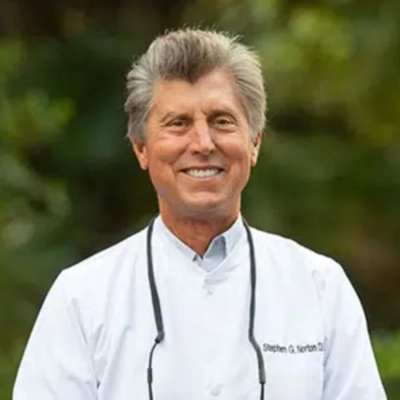5 Surprising Oral Hygiene Tips from Dental Professionals That Changed My Routine
Discover unexpected oral care strategies that dental professionals swear by but rarely share with patients. These evidence-based techniques challenge common assumptions about daily dental routines while offering simple adjustments anyone can implement. Leading dentists reveal how small changes to brushing order, rinsing habits, and cleaning methods can dramatically improve oral health outcomes.
Gentle Brushing Protects Gums and Enamel
One bit of advice that really caught me off guard when I was still relatively new to being a dentist was that less pressure during brushing can usually be better than scrubbing hard. I recall learning that tough brushing was required to remove plaque, but I later noticed that patients who brush gently with good technique and soft bristles tend to have healthier gums and less enamel loss. As a practicing dentist at Norton Dental Arts, I've noticed that patients who have brushed hard for years often develop receding gums or sensitive teeth. Switching to soft, circular strokes did make a huge difference.
That change in my own knowledge changed the way I teach patients. I now stress the importance of choosing a soft-bristle brush or even an electric toothbrush with pressure indicators so individuals are not destroying their enamel or irritating their gums. Learning that overbrushing causes gum recession made me reconsider much of the conventional advice I'd been taught. It also caused me to be more careful during regular cleanings at the Delray Beach and Lantana offices, checking for evidence of overly aggressive brushing.
Due to that counsel, my own daily routine altered. I now brush more gently, employing short, controlled strokes, and I floss in advance (prior to brushing) to minimize the necessity of brushing hard. As a cosmetic and family dentist, this has strengthened my smile and established an example that I impart to my patients. Gentle constancy, fine technique, and consistency tend to safeguard dental health more than force.
Alcohol-Free Mouthwash or None at All
Patients are often surprised when I recommend using alcohol-free mouthwash, or skipping it altogether if their brushing and flossing are consistent. Many assume rinsing with mouthwash provides extra protection, but alcohol-based formulas can dry the mouth and disrupt the balance of healthy bacteria.
By choosing the right rinse, or using one only when clinically necessary, patients often notice fresher breath and fewer problems with oral dryness. It also reinforces that oral care isn't about more products, but about using the right tools effectively.
This change helps patients prioritize balance over overuse, which leads to healthier long-term outcomes.
Skip Rinsing to Maximize Fluoride Protection
A dentist once explained that rinsing immediately after brushing actually washes away the concentrated fluoride before it has time to protect the enamel. That small detail completely changed my approach. Instead of rinsing with water, I now spit out the excess toothpaste and allow the fluoride to stay on my teeth longer. It was surprising because it contradicted the routine I had followed since childhood, yet the difference was noticeable within months. My checkups showed less sensitivity and fewer early signs of enamel wear. The lesson for me was that proper oral care is not just about consistency but about understanding the science behind each step. Small adjustments, even ones that feel counterintuitive, can have a long-term impact on dental health.

Floss Before Brushing for Better Results
The advice that reshaped my routine was to floss before brushing rather than after. I had always assumed flossing was the final step, but my dentist explained that removing debris and plaque first allows fluoride from toothpaste to reach areas between teeth more effectively. That small shift increased the protective benefit of brushing and improved gum health within a few months.
The change altered how I understood oral care. Instead of viewing each step—brushing, flossing, rinsing—as separate tasks, I began to see them as a sequence where order determines effectiveness. The improvement was measurable at my next cleaning, with less bleeding during probing and noticeably reduced plaque buildup. The lesson was that oral hygiene is not just about consistency, but also about technique, and that minor adjustments can yield significant results over time.

Tongue Scraping Reduces Bacterial Load Daily
As a dentist, I've seen hundreds of patients request magic mouthwashes or miracle pastes. But the most surprising bit of oral hygiene information that changed my own practice was tongue scraping in the morning. I would simply brush my teeth, then perhaps floss. But after I started tongue scraping regularly, I noticed how much bacterial load resides on the dorsum of the tongue, and how its removal concretely freshened breath and lowered plaque-bacteria.
Adding tongue scraping to my routine made it feel more balanced, rather than tooth-focused. In my practice at the Art of Dentistry, I now suggest soft stainless steel or silicone scrapers to nearly all of my patients who battle morning "fuzz," bad breath, or recurring plaque. Most patients tell me they never even thought of the tongue as a major contributor to oral health before.
This shift reshaped my perception of entire mouth care. I started handling the tongue, cheeks, palate, and saliva interactions as one system. It reminded me again that dental health is not the isolation of the teeth but the balance of the ecosystem.
That daily habit of tongue scraping became a cornerstone in my morning oral routine. It is not a remarkable or complex procedure, but in my experience, it provides disproportionate reward in breath, hygiene, and microbial management.




